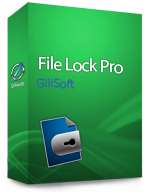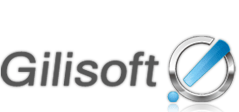- "What a fantastic peace of software! Great idea. Easy to use and does exactly what it says. Definitely a good buy."
- Michael -
"I can't say how I am overwhelmed by GiliSoft File Lock Pro it really solved my problem, and all my house and friends are happy for their secrets are for them and only them. thanks a million."
- Andrei Summers"

Screenshot:
Data Encryption
There are many different types of data encryption, but not all are reliable. In the beginning, 64-bit encryption was thought to be strong, but was proven wrong with the introduction of 128-bit solutions. AES (Advanced Encryption Standard) is the new standard and permits a maximum of 256-bits. In general, the stronger the computer, the better chance it has at breaking a data encryption scheme.
Data encryption schemes generally fall in two categories: symmetric and asymmetric. AES, DES and Blowfish use symmetric key algorithms. Each system uses a key which is shared among the sender and the recipient. This key has the ability to encrypt and decrypt the data. With asymmetric encryption such as Diffie-Hellman and RSA, a pair of keys is created and assigned: a private key and a public key. The public key can be known by anyone and used to encrypt data that will be sent to the owner. Once the message is encrypted, it can only be decrypted by the owner of the private key. Asymmetric encryption is said to be somewhat more secure than symmetric encryption as the private key is not to be shared.
Strong encryption like SSL (Secure Sockets Layer) and TLS (Transport Layer Security) will keep data private, but cannot always ensure security. Websites using this type of data encryption can be verified by checking the digital signature on their certificate, which should be validated by an approved CA (Certificate Authority).
Why Data Encryption?
As more users come to understand the internet's open nature and the dangers of web surfing, applying data encryption to common communications such as emailing and instant messaging is likely to become more popular. Without this security mechanism, information transferred over the internet can be easily captured and viewed by anyone listening. This critical data can be compromised in a number of ways, especially when stored in servers that might change hands over the years. When considering how detrimental crimes like are identity theft are on the rise, data encryption is well worth pursuing.
Intellectual property such as your employee and client information, product descriptions and business outline all qualify as invaluable information. These critical details should be secured at all times to ensure the integrity and confidentiality of your organization. This information is the core of your business and without it, you can't operate. If a criminal is able to access this data, there is no limit to the damage they can inflict.
GiliSoft File Lock Pro is supper encryption desktop computer software. It is lightweight but powerful program that will allow you to encrypt your files and folders and password protect them. Make sure to remember your password or you would not be able to decrypt files to "normal", readable state.
•Awards




•Articles
1. First Impressions on GiliSoft File Lock Pro.
2. Keep files and folders safe from prying eyes.

